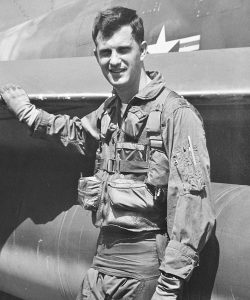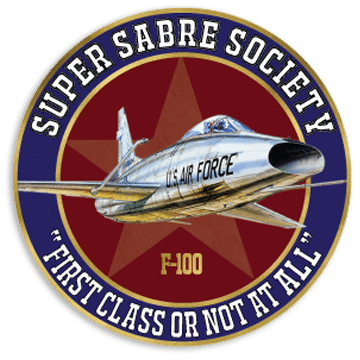Noel Duncan Caterpillar Story
 On December 26, 1968, Major Jim McKe0n (RIP) and I flew a CBU 34 mission (Call Sign – Sun Valley 61 and 62) to southern Laos not far from Channel 72. We contacted the FAC and briefed the mission, including a run-in heading that would be good for a bailout if we encountered problems.
On December 26, 1968, Major Jim McKe0n (RIP) and I flew a CBU 34 mission (Call Sign – Sun Valley 61 and 62) to southern Laos not far from Channel 72. We contacted the FAC and briefed the mission, including a run-in heading that would be good for a bailout if we encountered problems.
At 500 feet AGL, we dispensed the CBU as requested and in a formation with me on Jim’s right wing and a little high. After that run, we jettisoned our CBU pods and set up for a strafe pass, since the FAC had a good target in sight.
We made two strafe passes just to the northeast of our CBU target and started the exit join-up while waiting for the BDA from the FAC. Jim was at 14,000 feet and heading for Phu Cat as I joined up for a battle damage check. During this process, I started getting bad compressor stalls and Lead noticed flames coming out of my tailpipe.
I assumed the lead and headed for Pleiku. Went to Guard Channel and yelled MAYDAY and got all kinds of responses. With the throttle in a good position and not moving it, the engine seemed to stabilize so we decided to head for Phu Cat. We were at 17,500 by then. The weather at Phu Cat was 4,000 broken, so I started a constant power descent to arrive at low key for runway 33. Used speed brakes to slow down and go down, but promptly lost hydraulics in the utility system. I lowered the gear with the emergency system. Trying for base leg at 4,000 feet, I had to move the throttle. That did it! Fire came out the tailpipe and the intake of the airplane and the stick quickly froze.
It was time to eject! Everything was normal except that the seat hit my legs sometime during the process. That hurt, but I was lucky that it was my legs and not my head. Chute opened with a delightful “pop”, and I hit the ground in a rice paddy. No chance for a PLF in that stuff. I was knee-deep in mud and buffalo manure.
Fortunately, there were two army Hueys in the area that heard the MAYDAY and saw where I was. I ran a few yards to the helicopter that landed, climbed in under my own steam, and knew I was safe. However, it’s interesting to note that I was a real litter case once the helicopter landed at Phu Cat and I got off. I really didn’t walk on my own for 10 days. It is amazing what adrenaline will do!
Playing the event over again, I assume that I took a hit somewhere, but didn’t feel any impact or that anything was wrong with the airplane until I pulled the power back to rejoin. It is in the record books as a combat loss. End of story!
I returned to flying after a couple of weeks in the field hospital and completed my tour in May of 1969. I owe a thank you to the Huey pilots, whoever they were, and to Pratt and Whitney because my J57 ran long enough for me to get out of the real danger zone. Jim McKeon was a wonderful man and a joy to fly with. Some weeks later, he had a heart attack during a briefing in the 416th squadron building and died in the helicopter evacuating him to Quy Nhon. Rest in Peace, Jim.


